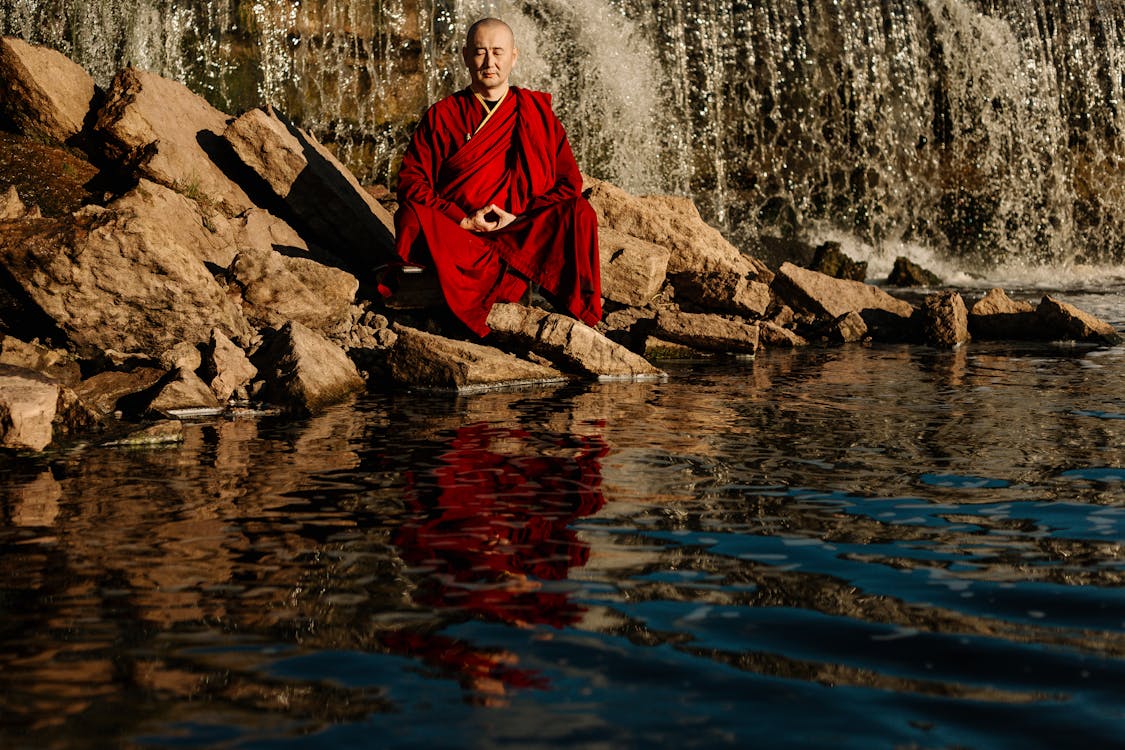Nikola Tesla, one of history’s most brilliant inventors and electrical engineers, has often been the subject of fascination not only for his groundbreaking scientific contributions, but also for his eccentric personality and unique philosophical views. Among the many questions that have arisen surrounding Tesla, one interesting question remains: Was Tesla a Buddhist? While there is no definitive answer, delving into Tesla’s spiritual beliefs and practices provides valuable insight into how his worldview may have aligned with Buddhist principles.
Tesla’s spirituality and personal beliefs
Tesla was known to have a deeply spiritual side that intertwined with his scientific pursuits. Often described as a man of extraordinary intellect and creativity, he also displayed an intense focus on personal well-being, meditation, and a sense of cosmic unity. Throughout his life, Tesla expressed a sense of connection with the universe and often considered himself a mediator of a higher intelligence.
Tesla’s approach to spirituality reflects key elements of Buddhist philosophy. He was a proponent of meditation and self-discipline, practices that are central to Buddhism. Tesla was known to engage in long periods of contemplation during which he imagined his inventions and breakthroughs in great detail. His belief in the mind’s power to influence physical reality closely mirrors the Buddhist concept of mindfulness and the mind’s ability to shape experience. Tesla’s remarkable ability to visualize complex ideas without sketches or diagrams shows his deep connection to mental clarity and focus – concepts often emphasized in Buddhist teachings.
Tesla’s interest in Eastern philosophy
Although there is no direct evidence that Nikola Tesla ever formally identified as a Buddhist, he displayed a deep interest in Eastern philosophy, particularly concepts such as karma, meditation, and the interconnectedness of all things. Tesla’s admiration for Eastern practices can be seen in his correspondence and interactions with contemporaries who were well versed in Eastern traditions.
Tesla was an avid reader, often consuming books on philosophy, mysticism, and Eastern thought. He was particularly fascinated by Indian philosophy, which later influenced his worldview. Tesla was captivated by the teachings of Swami Vivekananda, a key figure in bringing Indian philosophies to the Western world. Vivekananda’s emphasis on the unity of all existence and the divine presence in every living being resonated deeply with Tesla’s own ideas about energy and the interconnectedness of life.
Tesla’s concept of wireless power transmission and his vision of a world powered by free energy seem to align with certain Buddhist teachings about the interconnectedness and flow of life. Just as Buddhism teaches that all living things are interconnected, Tesla envisioned a world where energy could flow freely across the globe, offering power to all without borders or barriers.
Connections between Tesla’s views and Buddhist teachings
Although Tesla’s views were not exclusively Buddhist, several key tenets of his philosophy closely mirror Buddhist teachings. Below are some of the most notable connections:
1. The interconnectedness of all things
One of the fundamental tenets of Buddhism is the concept of interdependence—the idea that all things are interconnected and that nothing exists in isolation. Tesla’s work on wireless communication and power transmission reflects this idea as he sought to create systems where power could flow freely and reach every corner of the earth. Tesla saw energy as a universal force that could be harnessed and shared, similar to the Buddhist view that all living beings are connected by a web of existence.
2. The power of the mind
Buddhism places considerable emphasis on the mind’s role in shaping reality. Through meditation and mindfulness practices, individuals can train their minds to cultivate inner peace and awareness, ultimately leading to enlightenment. Tesla’s intense mental discipline and his ability to visualize the intricate details of his inventions reflect a similar focus on the power of the mind. He believed that by directing his thoughts toward specific results, he could manifest those thoughts into physical reality, closely related to the Buddhist teachings of cultivating mental clarity and concentration.
3. Karma and cause and effect
Karma, the law of cause and effect, is another fundamental concept of Buddhism. Tesla also embraced the idea that actions have consequences. While Tesla’s scientific work was often driven by the pursuit of knowledge and progress, he was deeply concerned about the ethical implications of his inventions. He often warned of the dangers of unchecked industrial progress and its potential for abuse, reflecting the Buddhist idea of mindful action and the importance of considering the impact of one’s actions on others and the environment.
4. The pursuit of enlightenment
Tesla’s lifelong pursuit of knowledge and his desire to improve the world are comparable to the Buddhist path to enlightenment. Tesla’s life was dedicated to deepening understanding and improving humanity’s connection with the natural world. He sought to create innovations that could uplift society as a whole, similar to the Buddhist goal of achieving enlightenment for the benefit of all sentient beings. Tesla’s commitment to progress and his belief in the potential of human ingenuity reflect a desire to reach a higher state of consciousness, similar to the Buddhist pursuit of awakening.
5. Non-attachment
A key tenet of Buddhism is non-attachment, or the ability to live without attachment to material possessions or results. Tesla’s lifestyle and work ethic reflected a form of detachment. Despite his significant achievements, Tesla lived a relatively austere life, often giving away his inventions or ideas without seeking financial reward or fame. His disregard for material wealth or recognition reflects the Buddhist practice of detachment from the material world.
Tesla’s vision of a harmonious future
Tesla’s dream of a harmonious, interconnected world powered by renewable energy sources aligns with certain Buddhist ideals. He believed that technology should serve humanity and unite people in a cooperative and peaceful world. Tesla envisioned a future where energy would be abundant and freely available to everyone, similar to the Buddhist desire for a peaceful world where all beings live in harmony and support each other.
Tesla’s deep concern for the welfare of others combined with his scientific genius reflects the Buddhist practice of compassion (karuna). Tesla was known for his generosity, often sharing his discoveries and giving money to those in need without expecting personal gain. His selflessness and desire to improve the lives of others further demonstrate a connection to Buddhist values of altruism and compassion.










